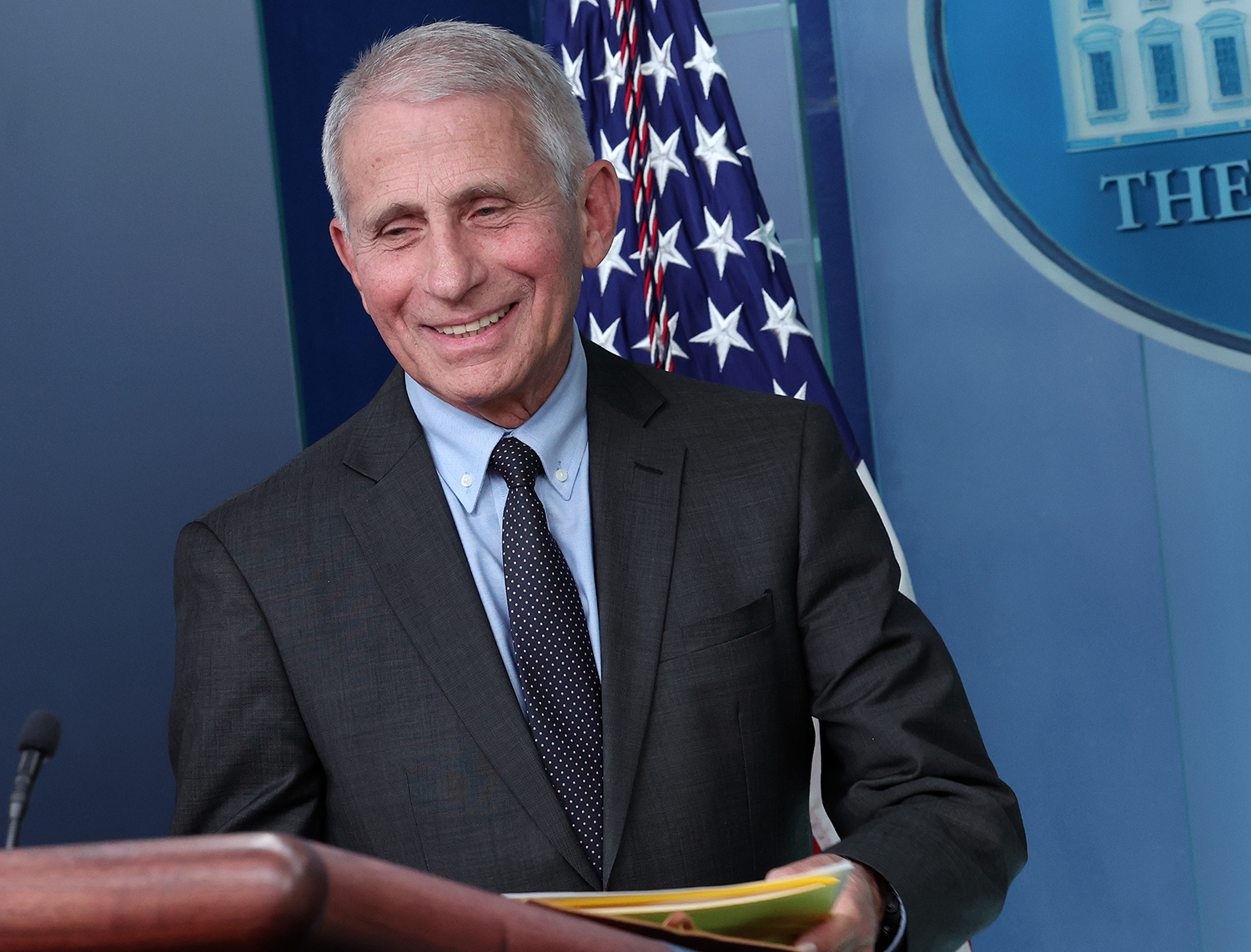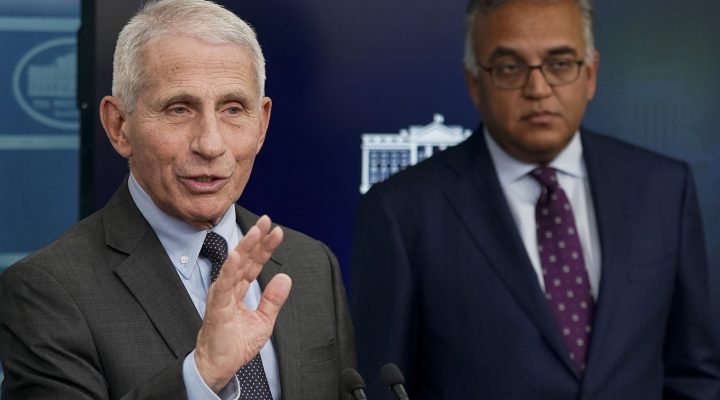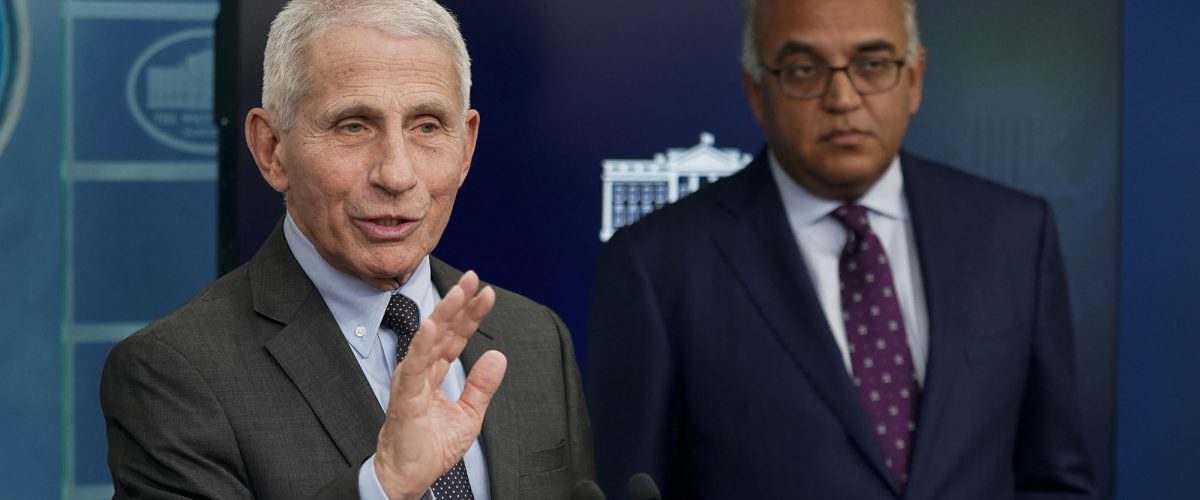“COVID is still with us. We’re still in a pandemic.”
This was the message Anthony Fauci wanted to convey to Baptist News Global readers in an exclusive interview near the end of 2022, as he finished his work as director of the National Institute of Allergy and Infectious Diseases.
“You have to look at it compared to where we were and then where are we now and what can we look for in the future,” he said. “We are certainly much better off now than we were a year, a year and a half ago when we were getting 800,000 cases a day and 3,000 to 4,000 deaths per day. We’re doing much better now. We are now having about 300 to 400 deaths per day. However, that’s still not low enough for us to feel comfortable. So, that gets to the question: Are we still in this pandemic? And the answer is yes.”
As the country settles into the winter months, Fauci wants it known the numbers will rise as we congregate more inside.
“Despite the fact that we’re much better off than we were, when you look ahead right now, we’re starting to see an increase in cases and an increase in hospitalizations that in some respects is predictable because we’re going into the colder weeks and months of the late fall and the early winter. People are congregating in social settings, particularly in the holiday season.”

Anthony Fauci, White House chief medical adviser, speaks during a briefing on COVID-19 at the White House on November 22, 2022, in Washington, DC. Fauci spoke on the updated COVID-19 booster shots and encouraged individuals to get their vaccines. (Photo by Win McNamee/Getty Images)
America’s most well-known infectious disease doctor is retiring from his high-profile post but he’s not retiring in the traditional sense. He still will work in the field of medicine.
Fauci has been in his current role an unusually long time.
“I’m in an unusual situation because of the duration and the longevity of my position,” he explained. “I’ve been at NIAD for 54 years and I’ve been the director of the institute for 38 years. So, it is an unusual and unique situation that a single person will be at something that long and experience just by the fact that that’s where I was at the time that I’ve experienced the beginning of the HIV outbreak and the beginning of COVID.
“I hope we’re coming to the end of COVID soon, and we’ve made major, major advances in HIV, particularly the availability of therapies that are truly lifesaving. When I started taking care of persons with HIV back in the early ’80s, virtually all my patients tragically died.”
As Fauci relives his experiences with HIV, his demeanor changed into a somber mode, although hopeful in knowing things are better for people who contract HIV today compared to the nearly 40 years ago when many influential evangelicals thought the infection was judgment from God.
“It was a very sad and dark period of my professional career and of my life,” he said. “But thank goodness, over a period of several years, due to the investment in basic and clinical research, we were able to develop a constellation of drugs, which when given in combination, can actually allow a person with HIV to live essentially a normal lifespan, which was unimaginable in the beginning when everyone was dying. Now, if you can get the drug to a person and have them take it regularly, they can go on and live their life, work, have a family, do all the things you want to do in life.”
Fauci is not immune to his share of criticism and even at times being demonized whether by Donald Trump or some in evangelical circles. He tries to keep focus on the purpose of why he’s been in the position he’s been in.
“I’ve learned to focus and compartmentalize what the important things are, what my goal is, what my mission is.”
“I can’t say exactly but, I can tell you what I think is contributing to that is first of all, I’ve learned to focus and compartmentalize what the important things are, what my goal is, what my mission is and that’s how I’ve devoted my entire professional life. My primary goal is to protect and preserve the health of the American public as a physician, as a scientist, as a public health person and a public servant.
“So when I get all of those hand grenades thrown at me by people who are conspiracy theorist and radicals, I just try not to pay attention to that because that’s really in my mind a distraction from the real purpose of what you should be doing. I’ve learned not to let those kinds of things bother me.
“I grew up in the streets of Brooklyn,” he continued with a laugh. “I learned to be able to take a few things thrown at me.”
His second motivating word is “purpose.”
“I think it’s the purpose of what your goal is, what you’ve devoted yourselves to,” he said. “If you are passionate about what you’re doing and you realize the importance of it, you really generate energy you didn’t think you had. It’s kind of like an athlete. When you’re in a really important game, you dig down deep and you pull it out and you say, ‘Wow, how can that person keep going that long?’ And you do it because you have to do it.”
But like any doctor, Fauci does have some final medical advice for his patients — the American public: “What we have to do is we’ve really got to address the issue of putting aside this divisiveness that’s in our society, which is really antithetical to a good public health response.”
Maina Mwaura is a freelance writer based in Atlanta.
Related articles:
Anthony Fauci: Faith leaders needed in the fight against COVID
Speaking truth to power means denouncing lying politicians and their preachers | Opinion by Wendell Griffen
Being ‘pro-life’ means telling the truth about COVID-19 | Opinion by Mark Wingfield


